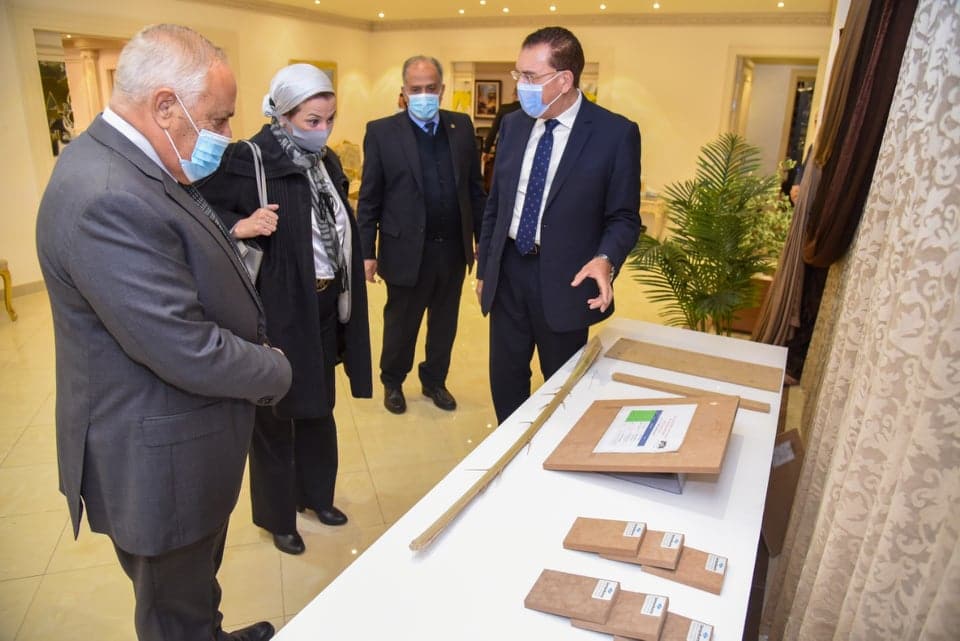In Egypt, the government wishes to meet the needs of the local market for medium density fibreboard (MDF). These are panels made from wood fibres, dry treated, uniform over the entire surface and smooth on both sides. This product is used in the manufacture of furniture and house fronts; decorative laths or skirting boards, doors and frames; as well as for laminate flooring. The material can be used as a roof underlay, bracing or insulation.
To meet the demand, the Egyptian authorities are planning to set up a factory in the country that will transform palm waste into MDF. The president of the Arab Organisation for Industrialisation (AOI), Abdel Moneim Al Tarras; the Egyptian Minister of the Environment, Yasmin Fouad and the governor of the New Valley, Mohamed Zamlout recently held a working meeting to lay the foundations of the project.
The reduction of pollution
The future factory will be built in Al-Kharga, an oasis located in the governorate of the New Valley. It will have facilities for the sorting and recycling of palm residues. This waste is usually disposed of by incineration or landfill, which has negative effects on the environment. “The plant will have an annual capacity of 60,000 m3, thus reducing the import of MDF from abroad. The local market needs 400,000 m3 of MDF,” says Abdel Moneim Al Tarras, the president of the AOI.
The recovery of palm residues will also help to combat pollution in Egypt, a country where 95 million tonnes of waste are produced every year, according to the Egyptian Environmental Affairs Agency.
Inès Magoum
